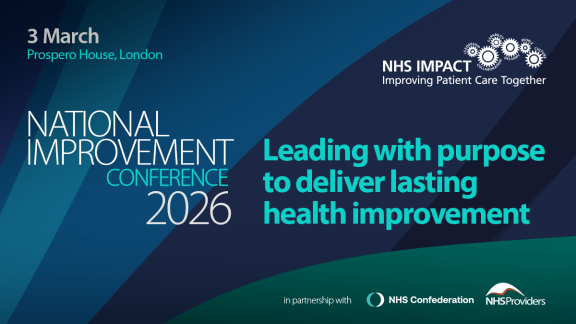The challenges of developing integrated care partnerships (ICPs): a discussion

Following the publication of the national ICP engagement document, the ICS Network hosted a ‘Spotlight’ session with the Department for Health and Social Care, providing ICS leaders with an opportunity to discuss and ask questions about ICP establishment. This briefing summarises the key issues covered.
Key points
- All integrated care systems (ICSs) are at different stages in their development and establishing ICPs brings different challenges depending on size, relationships and other local circumstances within systems.
- It will be important to build on the structures and relationships already in place locally and to bear in mind the important role existing partnerships and health and wellbeing aoards play.
- The permissiveness of the health and social care bill in allowing ICSs to develop in a way that suits local needs is vitally important when it comes to setting up ICPs that will work.
- ICPs are not just about ‘seats around the table’: they are intended to actively drive integrated working between partners across a system.
Philippa Baker, deputy director of the Department of Health and Social Care's NHS Legislation Programme Team, engaged senior ICS leaders at our Spotlight session, listening to member views and talking through specific questions and challenges. This briefing captures some of the questions and answers.
Your questions, answered
Q. Can an existing health and wellbeing board (HWB) become an ICP?
A health and wellbeing board cannot become an ICP because they are both statutory committees. However, they could have the same membership and hold joint meetings, particularly for smaller systems where there is only one HWB. For example, half the meeting could be for the HWB and the other half for the ICP. There is a specific role for HWBs within systems and the legislation seeks to empower them.
Q. We are a small system and we would like the chair of the HWB to also chair the ICP. They would then have a seat on the ICB as well, doing the joint work. Are there any concerns about us doing that?
This isn’t an approach that DHSC has come across before but, in principle, it should not be an issue and could create a positive dynamic.
Q. What about local authorities or NHS trusts which sit across more than one ICP area?
Most places are coterminous with their local authorities. In systems that lack co-terminosity, it will be for the ICS to decide who sits on which board. It is not a decision for DHSC centrally. It is down to local areas to come to a solution.
Q. Will the new integration white paper have anything in it that will affect ICPs?
The white paper builds on an increased understanding that systems need to work together. It has not yet been drafted but will be about supporting integration and how we do it well.
Q. One of the challenges for ICPs and ICBs will be the stress between ambition and funding. For example, housing, education, and wealth creation - are we in danger of expecting the NHS to overreach?
We do have very big ambitions for ICSs but there is a note of caution about what they can do. They are sorting their governance out and need time to deliver. It is about maturity and building relationships. We do not want to say ICSs can’t think about housing and wider determinants but from day one they will all be in different places.
There are real opportunities with ICPs to join up thinking and working in this area. You can join workforce planning with a local authority approach to training and growth. The NHS does not have to do it all; it’s about the collective contribution. The good thing is that the ICP allows for building communities and looking beyond the urgent, immediate every day.
Q. What is the accountability for ICPs?
ICPs should not be out of sync with ICBs, as it is up to ICBs to set up ICPs in the first place. We should not have an ICP doing things very different to what the ICB wants to do. The ICB is an NHS structure so reports in to NHS England: that is the official accountability upwards. The ICP, meanwhile, will rely on some degree of mutual accountability. As per the ICP engagement document:
'Partners responsible for delivering the priorities of the ICP’s integrated care strategy – for example, ICBs, local government and other stakeholders – will also be members of the ICP and therefore able to hold each other to account.'
In addition, there is a proposal currently to develop a new assurance regime for adult social care on the local government side and the Care Quality Commission (CQC) will be overseeing systems as a whole. They will be looking at how integrated the systems really are and how well they are working. The intelligence from the CQC will be examined by DHSC. These are new accountability mechanisms coming through the bill that are not currently in place.
Q. How do we avoid the ICP having a cast of hundreds and how do we get them to work through focused groups?
All the voices you would ideally want on the ICB should be included within the ICP. We have legislated for the minimum requirement and then ICSs can add to this. It is important to remember that integrated care is not all about sitting on actual boards. There are lots of dynamic ways to engage with groups. There will be a point when the boards and committees are too big. ICPs can create sub-groups on particular topics to then shape what the actual committee deals with.
Q. The ICP has the potential to strengthen existing partnership forums, for example through strengthening our VCSE and faith group relationships. How do we stop the pressures of the NHS stopping the work of the wider ICP?
Real opportunities come from relationships, not from governance and structures. It is all about building on what you currently have and the ICP needs to be an equal partnership.
Q. Will DHSC be compiling a list of questions for systems to ask themselves while establishing their ICP?
DHSC may produce guidance on what makes a good health plan if the system thinks this would be helpful. The team is also refreshing the health and wellbeing board guidance and how they fit into ICS and that is currently being developed.
Q. What would ICSs value to support them in establishing ICPs?
ICSs would welcome a case study approach which they can learn from and potentially replicate rather than further guidance. This could include examples of where things have not worked.
It would be really helpful to connect with all ICSs in 18 months’ time to review what has worked well/not so well so that we can learn from each other.
Next steps
This Spotlight session gave ICS leaders a chance to have key discussions with DHSC about challenges they are facing while working towards becoming statutory organisations from April, including setting up the integrated care partnerships.
This was just the start of the conversation. We are planning to hold further sessions with DHSC on this topic over the coming months, with ‘deep dives’ into systems with shared characteristics (such as smaller and larger systems).
If you have any suggestions for other topics that you would like us to focus future sessions on, please contact Sarah Walter.



